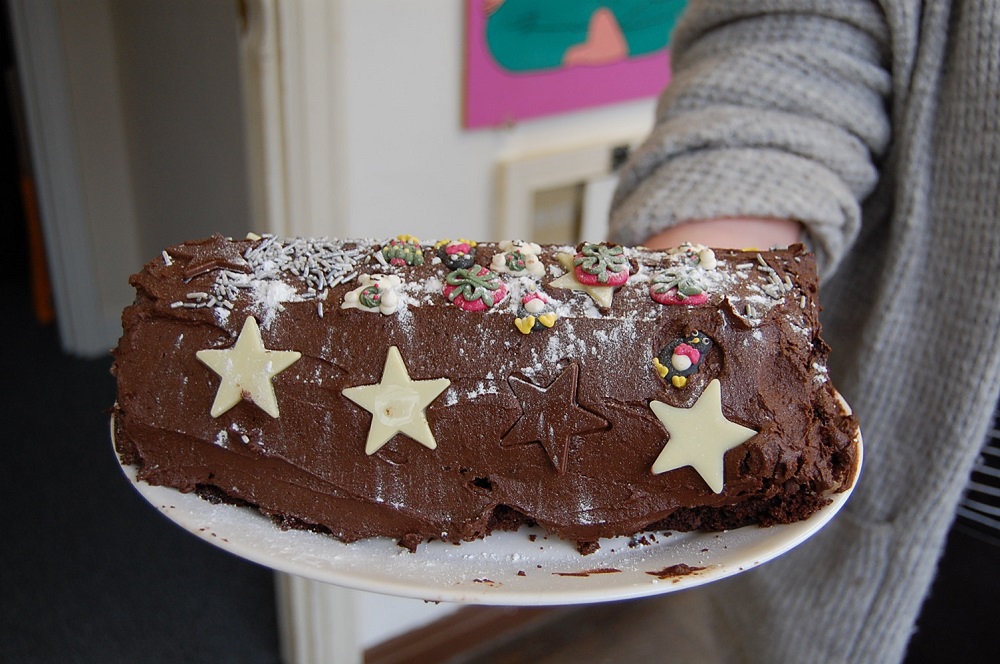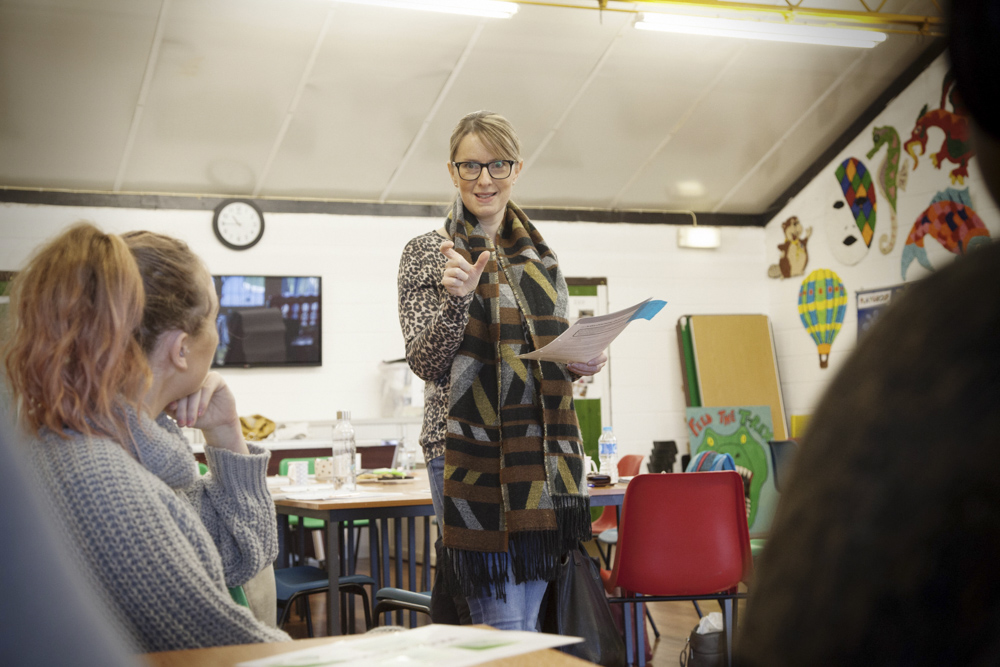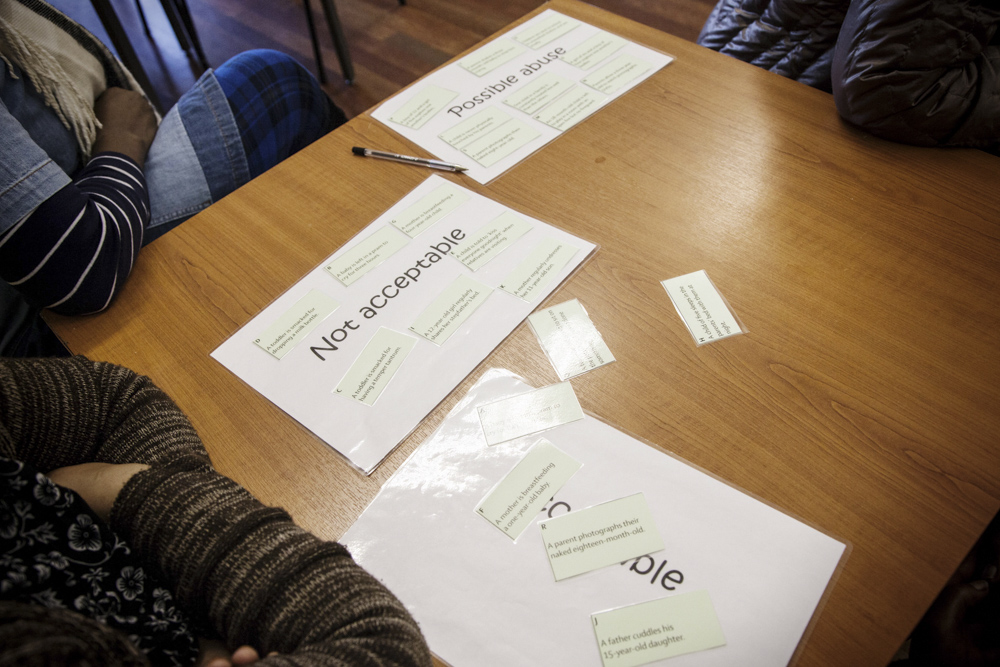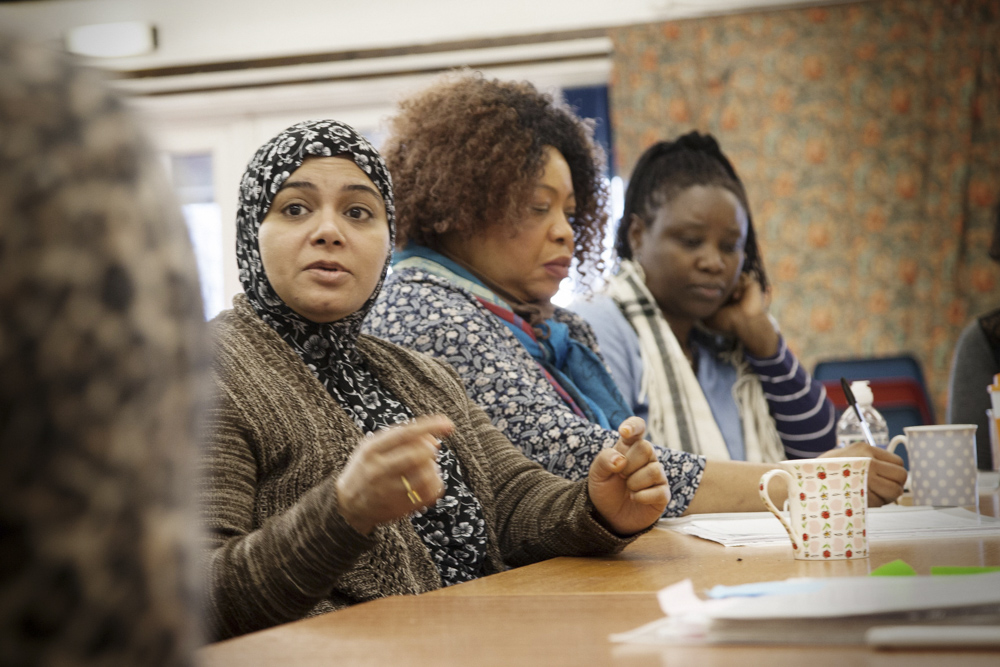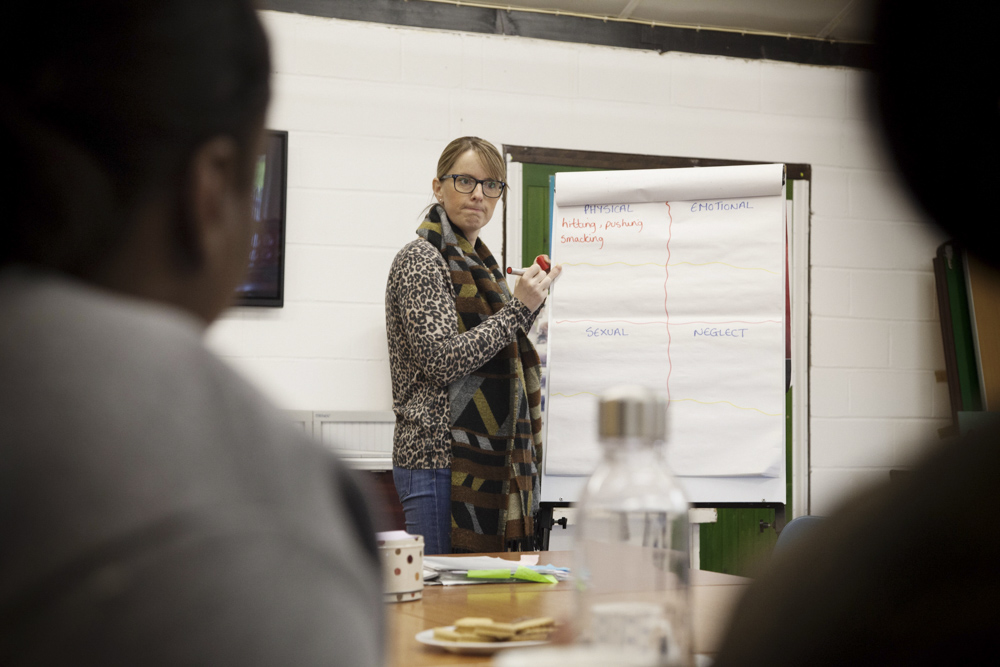“Sopranos, on the count of three. One, two, three….Every little thing is going to be alright….
Altos get ready…and three…Every little thing is going…
Tenors, two, three…Every little thing….”
Tosin, the choir’s Director, clicks the rhythm with her fingers and they all follow her lead. When she’s happy it’s time to stand up and give it their best.
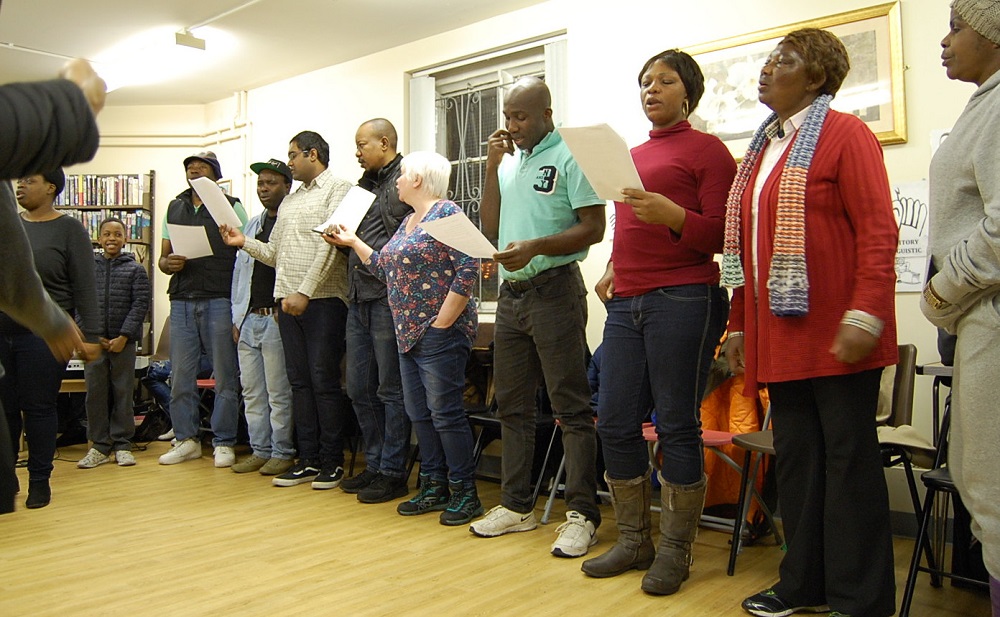
“One love, one heart, let’s get together and feel alright”
“Louder, sopranos, and…” The air vibrates with the volume. I feel privileged to be there.
It’s Monday evening and I’m at a workshop for Amani Creatives Community Choir. They line the edges of the practise room. They’d started with breathing exercises and musical scales followed by an African song. It sounded rich and rhythmical.
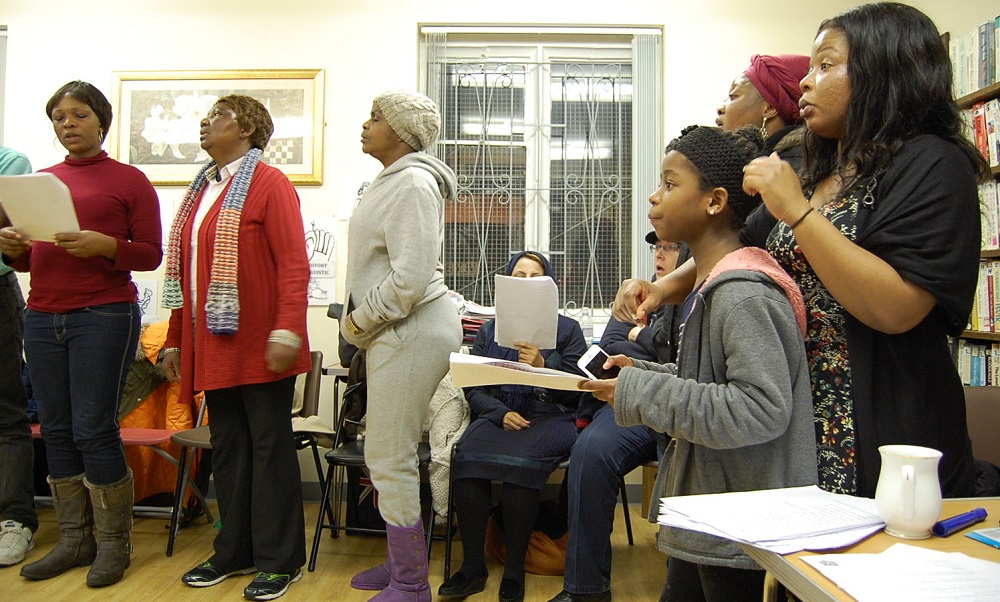
Three musicians support them. I cannot play an instrument or read music so, to me, what they do is nothing short of magic. Tosin communicates with them using just a few notes or hand signals and they make slight adjustments to the rhythm or pitch that to her make all the difference.
At the break I get chance to speak to the choir’s Creative Producer Emmanuela Yogolelo to find out more.
“We’ve been together since May” she tells me. “The idea came about following last year’s winter festival. We felt the community should be actively involved so we handed out fliers and talked to people to see if they were interested in singing or even listening to music.
A choir is a great way to get people out and socialising and we want it to reflect the diversity in our community regardless of age, gender, nationality or ethnicity so that everyone is represented”.
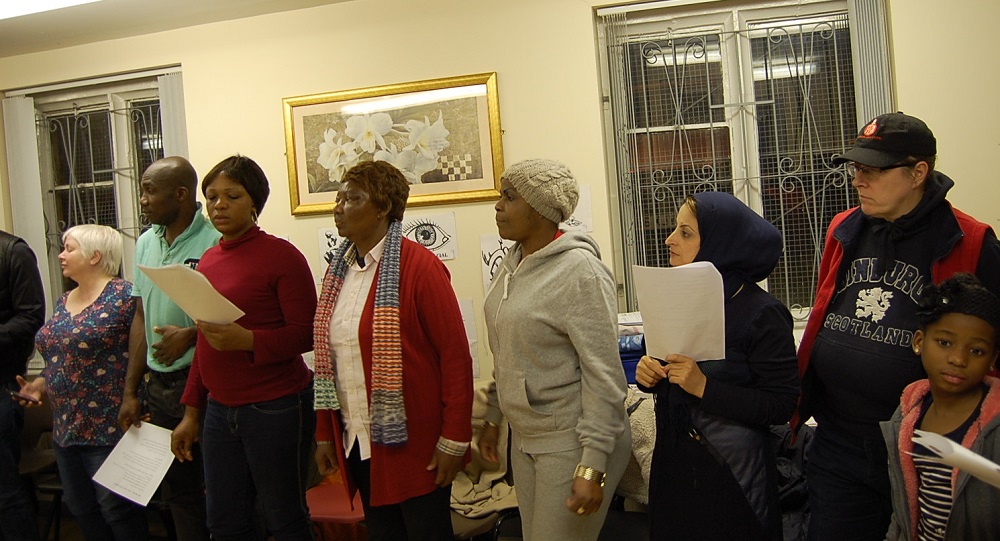
I comment on the songs I’d heard them practise so far as they’re all different.
“We sing in different languages and a range of songs including African, reggae, jazz and popular songs like Oasis. It’s a varied just like our membership. We want to appeal to as wide an audience as possible.
The musicians are professional African so there is no denying the African influence in some of the arrangements. It’s important for the development of the choir to get used to working alongside them”.
There was hardly a spare seat in the practise room so I ask what will happen if they expand.
“We’d have to use the main hall upstairs although it would cost more.
We’ve been lucky enough to receive funding from Forever Manchester. Securing funds to meet our costs is a big challenge. If successful, we aim to develop the choir to the next stage, improve performance quality, hopefully perform locally at events and build up a good reputation.”
The practise session is about to restart so we re-join the rest of the choir. I stay a while and listen to ‘Mary Did You Know’. It sounds lovely and so infectious that I join in – just can’t stop myself!
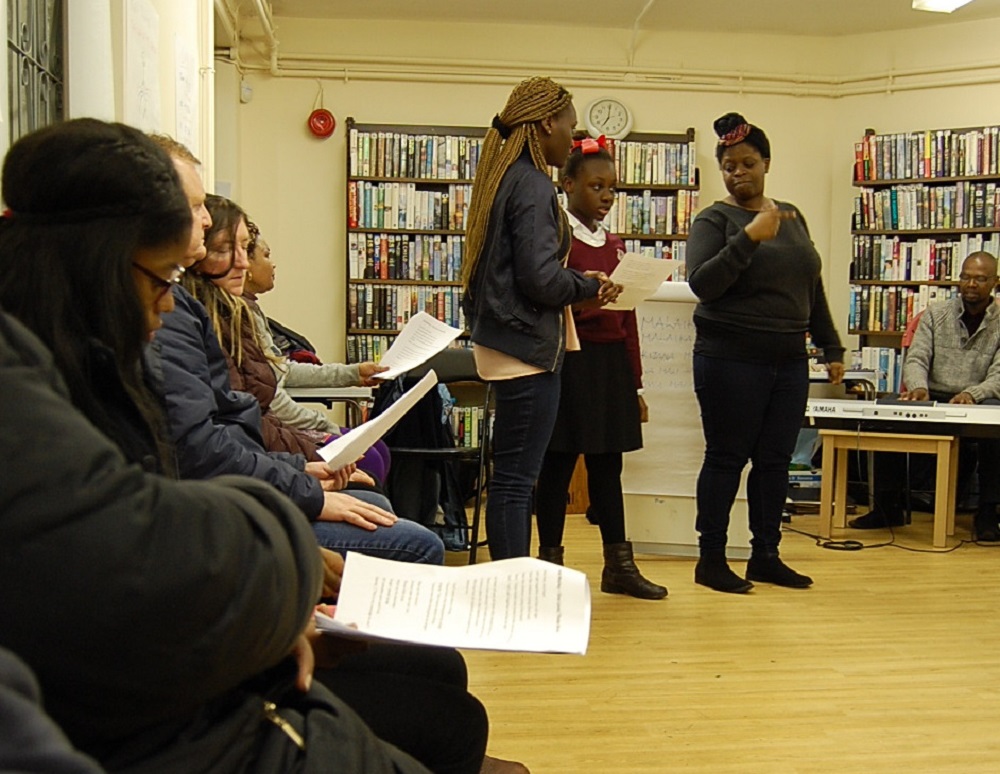
If you want to hear them too, join them at their Christmas Concert on Saturday 23 December at 4pm in the Simpson Memorial Hall, 361 Moston Lane, Moston. It’s free and everyone is welcome.
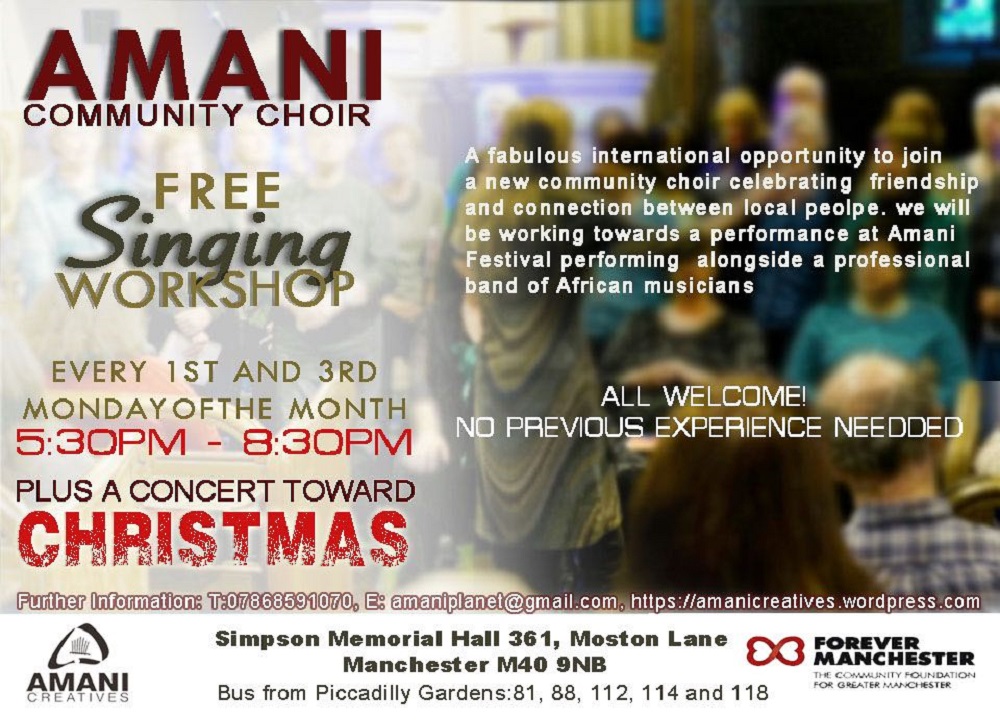
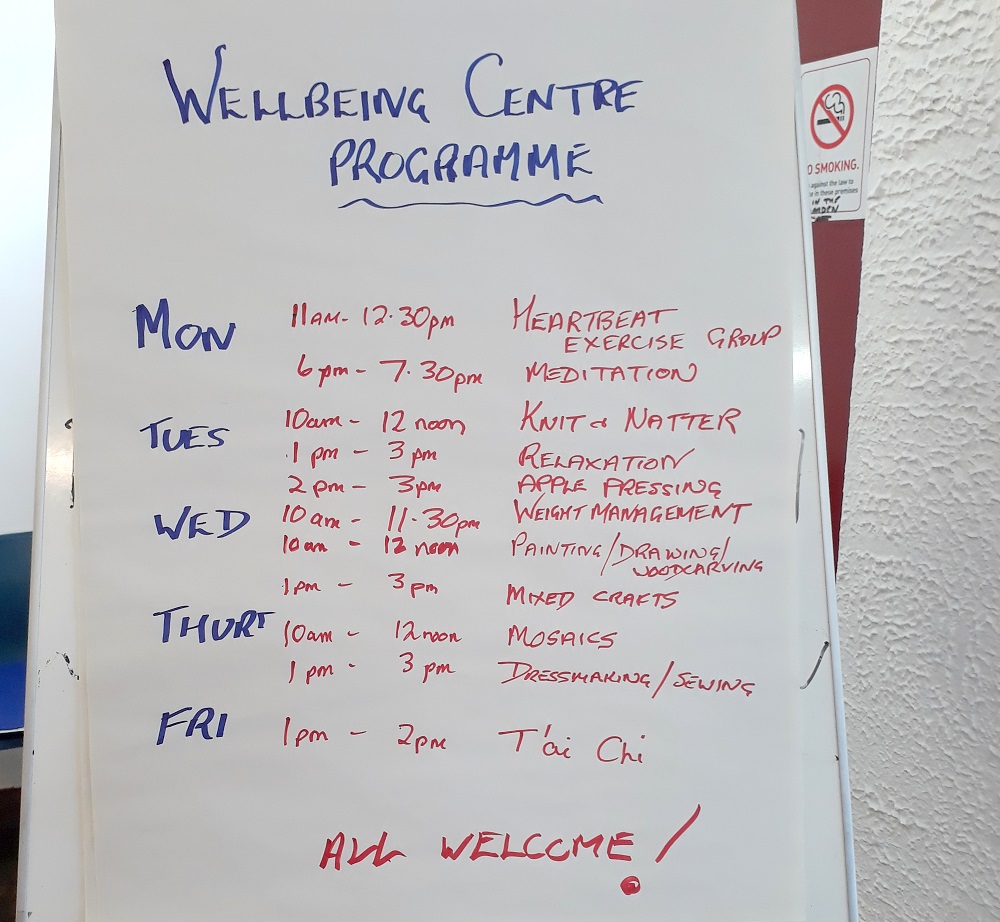
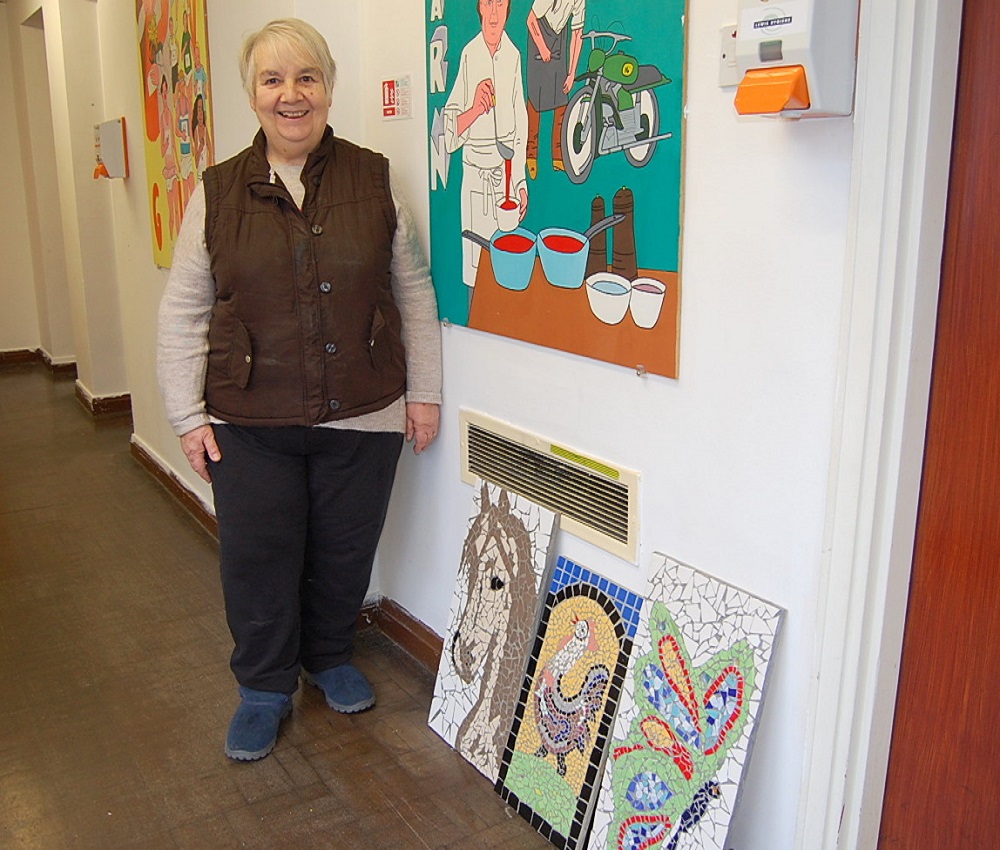 “So how did it all start?” I ask.
“So how did it all start?” I ask. “We found that bringing people together to do activities really benefits them. They learn new skills, make new friends, share stories, advise and help each other. It can even reduce dependence on medication. It’s a miracle and we facilitate it happening.”
“We found that bringing people together to do activities really benefits them. They learn new skills, make new friends, share stories, advise and help each other. It can even reduce dependence on medication. It’s a miracle and we facilitate it happening.”